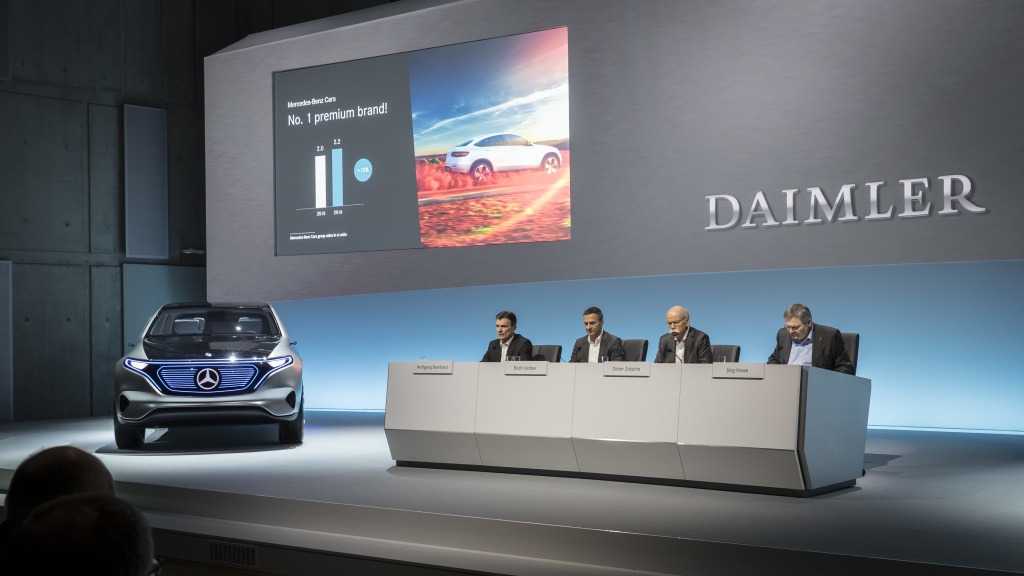One million Daimler vehicles could have excessive emission levels
13 July 2017

13 July 2017
Vehicle manufacturer Daimler has been accused of selling over a million vehicles with excessive emissions in Europe and the US, according to a report in a German newspaper.
The claims cite a search warrant issued by a court in Stuttgart, following a search of the company’s sites in Germany during May 2017. The warrant followed allegations of false advertising and the possible manipulation of exhaust gas treatment systems in cars, similar to the Volkswagen (VW) scandal.
According to that document, more than one million vehicles with excessive emissions, including a number of Mercedes-Benz models, were sold in the two territories between 2008 and 2016. A spokesman for Stuttgart-based Daimler declined to comment on the continuing investigation by local prosecutors, adding the carmaker was fully cooperating with the authorities.
The affected vehicles are powered by engines codenamed OM642 and OM651, with prosecutors examining whether ′defeat devices’ were used to manipulate emission levels during official testing, a move which VW admitted to in September 2015. The newspaper states that the vehicles sold by Daimler risk being banned in the markets, although a spokesman stated that the company sees no risk of losing type approval for the models.
The manufacturer saw raids take place across 11 sites in the German states of Baden-Wuerttemberg, Berlin, Lower Saxony and Saxony during May 2017. Prosecutors were looking for data files and evidence with which to build a case. Mercedes-Benz brand owner Daimler said it was cooperating with the authorities over the investigation.
Following the news, Daimler shares dipped by 2.5%, however experts believe that while the news will ′spook’ investors, the level of emissions cheating and affected vehicles is not close to that uncovered in the VW scandal.
Daimler is just one of a number of vehicle manufacturers under investigation in different markets, for issues relating to emissions cheating. As well as VW and its Group brands, including Audi and Porsche (for market manipulation), Fiat Chrysler Automobiles (FCA), General Motors (GM) and more recently Suzuki have had the finger pointed at them for doing something wrong in this area.
While many vehicles are believed to be carrying the cheat software through their ECUs, manufacturers have to disclose it and show that the system has not been used to manipulate tests. It is believed that the software is included on components supplied by German parts supplier Bosch, which has also been subject to an investigation in the US, agreeing a compensation payment while not admitting liability in any attempts to cheat emissions testing.
Meanwhile, the head of Daimler, Dieter Zetsche, has suggested that drivers who would like their vehicle to be retrofitted with new software to lower emissions, in response to potential driving bans in cities, should be able to do so free-of-charge.
Currently, German authorities are working with vehicle manufacturers on a plan that will see Euro 5 specification vehicles recalled and fitted with new software. While carmakers have agreed to cover the cost of system development, there is no agreement on who will cover the cost of servicing the vehicles.
Zetsche comments that the solution will not just be a local one, but must be Europe-wide. Talking to a group of journalists, he commented: ′We have an idea what would cost the application of the software solution.″¯At first, however, one would have to agree on a common approach.″¯There will not be a Stuttgart solution, rather, one has to agree on a uniform European approach.″¯We are cooperating constructively and hope that a joint solution will come.’
The comments suggest that any agreement in Germany could be rolled out to the rest of the continent, helping the diesel market to meet emission requirements and reducing air pollution levels in cities.
Photograph courtesy of Daimler